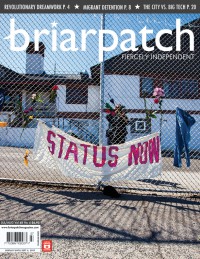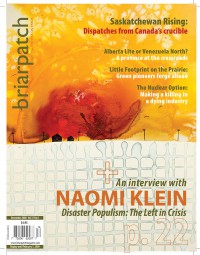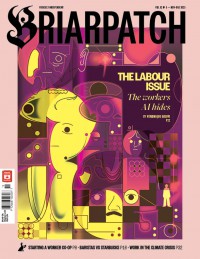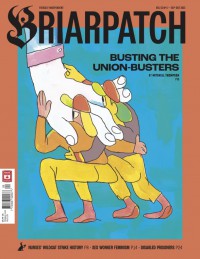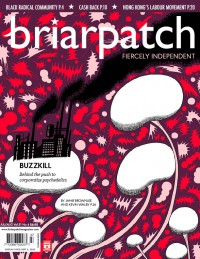-
 Magazine
MagazineMigrant workers’ fight to unionize in the Yukon
Fed up with poor working and living conditions, migrant workers are organizing. The Yukon’s labour movement needs to step up and support them.
-
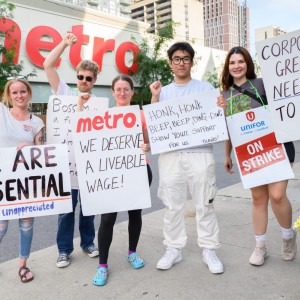 Magazine
MagazineInflation, bargaining, and worker power
Workers are fed up with measly wages that don’t pay the rent while their bosses’ profit margins soar.
-
 Magazine
MagazineThe workers AI hides
Behind the newest AI technologies are hundreds of Canadians labouring for a fraction of minimum wage.
-
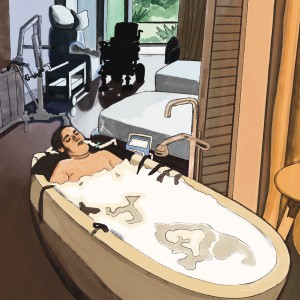 Magazine
MagazineDreaming of home care futures
Without a public home-care system, disabled people are forced to choose between living in a long-term care home, medical assistance in dying, and hiring an underpaid migrant home-care worker.
-
 Magazine
MagazineSmash the machines
As Big Tech unleashes new technologies increasing worker surveillance and eroding working conditions, workers can learn from the Luddites’ example.
-
 Magazine
MagazineMedia by and for workers: a reading list
Not only do labour-focused publications RankandFile.ca and Labor Notes report on workers’ struggles – they help workers build a stronger labour movement. Here are a few articles for workers looking to organize more strategically.
-
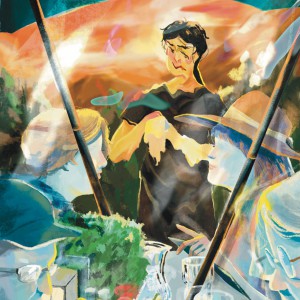 Magazine
MagazineB.C.’s forgotten front-line workers
Food service workers struggle under weak protections from extreme weather. B.C. labour advocates are fighting to change that.
-
 Magazine
MagazineThe battle to bargain with Starbucks
Of the hundreds of unionized Starbucks locations in Canada and the U.S., only two have negotiated a collective agreement. Baristas fight against the coffee giant is just beginning.
-
 Magazine
MagazineHow to start a worker-owned restaurant
The Allium was a community hub with a vision for a more equitable service industry. Now closed, its success offers lessons for future worker-owned co-ops.
-
_300_300_90_s_c1.jpg) Magazine
MagazineLabour against Big Tech
As bosses and Big Tech push us to make every second productive, this issue’s articles show that we can take control of working conditions, from status for all, to a just transition, to Big Tech’s reach, if we’re willing to make those demands – and to act for them.
-
 Magazine
Magazine“Do it for yourself, your people, and your land”
An interview with the judges of Briarpatch’s 13th annual Writing in the Margins contest: Helen Knott, Juliane Okot Bitek, and Kevin Settee.
-
 Magazine
MagazineBusting the union-busters
As thousands of workers push to unionize, their bosses are hiring union-busting companies to cling to power. Here’s how you can out-organize your boss.
-

-
_300_300_90_s_c1.jpg)
-
 Magazine
MagazineA reading list on Palestinian refusal
On the tail end of the 75th anniversary of the Nakba, these articles, books, and podcasts demonstrate Palestinians’ strong spirit of refusal.
-
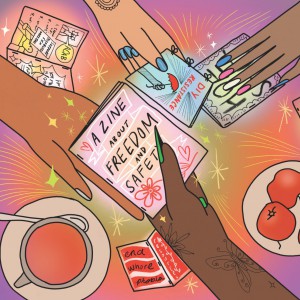 Magazine
MagazineSex worker feminism
Anti-sex work feminists endanger the lives of sex workers and prop up the far right. To fight fascism, the left must adopt a sex worker feminist politic.
-
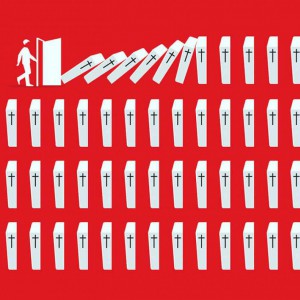 Magazine
MagazineCOVID capitalism
Tithi Bhattacharya, Nora Loreto, and Naomi Klein on the impact of COVID-19 neoliberalism and working through pandemic-era isolation to build a better world.
-
_300_300_90_s_c1.jpg) Magazine
MagazineDisability and the prison system
It’s not a coincidence that so many prisoners are disabled – the system was designed that way.
-
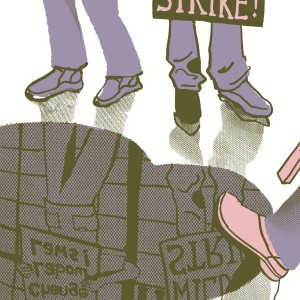 Magazine
MagazineA message to nurses: it’s time to organize
Governments are selling off the health-care system to the private sector, compromising patient care and nurses’ working conditions. If nurses organize, we can stop the sell-off.
-
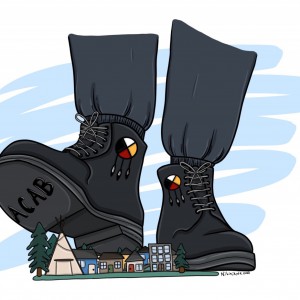 Magazine
MagazineIndigenous cops are cops, too
To stifle Indigenous organizing, the Canadian government is investing in Indigenous police officers.
-
 Magazine
MagazineIndigenous policy is foreign policy
Canada’s Indigenous relations aren’t domestic – Canada is an imperialist settler colony. If our movements stand a chance against the fascist far right, we need to reject the liberal reconciliation narrative and understand that Canada is an invasive force.
-
_300_300_90_s_c1.jpg) Magazine
MagazineThank you, readers
Thank you Briarpatch readers for making this issue of the magazine possible. We’ll do what we can to keep earning that support, for as long as it takes us to bring into being the better world we’re all fighting for.
-
 Magazine
MagazineBlack radical love in Waterloo
For over 200 years, Black people have built community and taken care of one another in so-called Waterloo, Ontario.
-
 Magazine
MagazineWhat is Cash Back? A settler FAQ
Settlers have a lot of questions about the call for Cash Back. Briarpatch sat down with Yellowhead Institute researcher Rob Houle to learn about the movement.
-
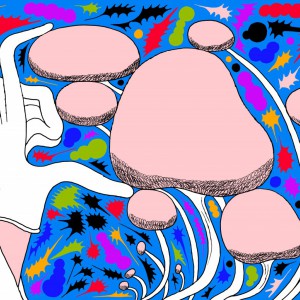 Magazine
MagazineBuzzkill
As governments decriminalize psychedelics, companies are clamouring to gain a foothold in the market. But is the medical industry best suited to bring psychedelics into the mainstream?
-
_300_300_90_s_c1.jpg) Magazine
MagazineGraphic novels for leftist readers
Leftist reads are often dense and difficult to understand. Thankfully, there are many graphics novels that cover the same issues in a more accessible format.
-
 Magazine
MagazineWho is a prisoner?
From psychiatric facilities to youth detention centres, the prison keeps growing. To abolish prisons, organizers first need to map the system.
-
 Magazine
Magazine“We will be back”
Four years after the historic Hong Kong protests, organizers reflect on how to grow the labour movement under China’s increasing political repression.
-
 Magazine
MagazinePushing climate refugees into migrant worker programs
As climate change displaces millions worldwide, the Canadian government is expanding temporary foreign worker programs and funnelling migrants back onto the front lines of the crisis.
-
 Magazine
MagazineFighting fascism in feminism
Five trans feminists on the rise of fascist feminism and how to fight back.
-
 Magazine
MagazinePushing pipeline ownership onto First Nations
How industry and governments hatched plans to pass the most contentious pieces of resource industry infrastructure onto First Nations
-
 Magazine
MagazineWho is the NDP for?
Rule changes, hostile colleagues, and a lack of democracy – Anjali Appadurai, Kaitlyn Harvey, and Navjot Kaur share their experiences organizing and running with the NDP.
-
_300_300_90_s_c1.jpg) Magazine
MagazineThe struggle lies beyond the bargaining table
Losing an election or settling for a subpar collective agreement can feel like devastating losses in leftists’ larger struggle for power. As we continue to organize for better working and living conditions, the articles in this issue remind us that the struggle isn’t won at the polls or at the bargaining table, but on the picket line, on doorsteps, and in conversations with our communities.
-
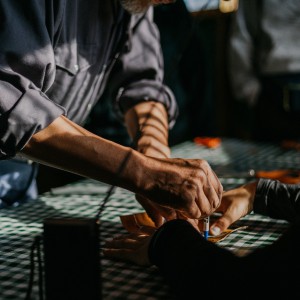 Magazine
MagazineThe canoe as home
Youth canoeing camps resist colonial policies and occupation by restoring Indigenous youth’s relationships with canoeing.
-
 Magazine
Magazine“They don’t know how to fight for this”
In year four of the COVID-19 pandemic, will unions fight for workers’ right not to get sick on the job?
-
_300_300_90_s_c1.jpg) Magazine
MagazineBlack radicalism has always included disability justice
In her new book “Black Disability Politics,” Sami Schalk highlights the Black disability justice activism overlooked by mainstream disability rights movements and writing.
-
 Magazine
MagazineThe case for abolitionist sex education
If we’re serious about addressing sexual harm and providing consent-based sex education, we need to teach students about alternatives to the police and equip them with tools to deal with harm when it happens in their communities.
-
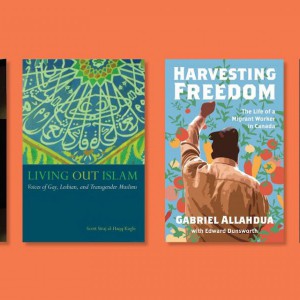 Magazine
MagazineA reading list on resisting dehumanization
In this reading list, Black women, queer and trans people, people who use drugs, sex workers, and migrants share their stories of marginalization and their fight to be recognized as valuable community members.
-

-
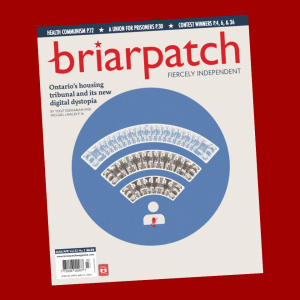 Magazine
MagazineA principle and a place
While the state abandons people it deems disposable, many of the articles in this issue highlight and strategize how to better organize and include people in the margins in our movements.
-
_300_300_s_c1_c_t.png) Magazine
MagazineA Marxist reader for disorienting times
A reading list to help leftists face the conditions within which we organize without consolation or despair.
-
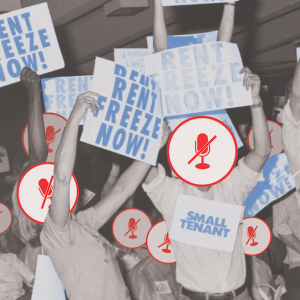 Magazine
MagazineAssembling a digital dystopia
The Ontario Landlord and Tenant Board’s “digital-first” hearing model is silencing tenants and helping landlords evict them.
-
 Magazine
MagazineBirth control and reproductive justice
Hormonal birth control has long been a feminist symbol of choice, but without other options, is it truly a choice?
-
 Magazine
MagazineSand
We song our stories – put them to a beat, draw the melancholy out of them, voices like droplets squeezed out of a braided dish rag on an open balcony.
-
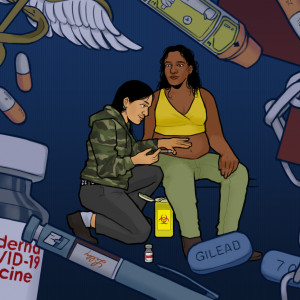 Magazine
Magazine“Health is capitalism’s vulnerability”
An interview with Beatrice Adler-Bolton on her new book “Health Communism: A Surplus Manifesto”
-
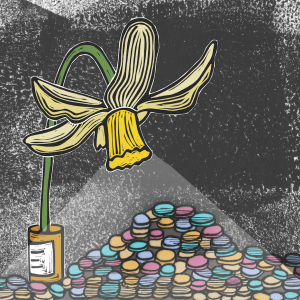 Magazine
MagazineCause of death
Sophie didn’t mean to die. She had simply arrived at the point where she was prepared to try anything to feel better.
-
 Magazine
MagazineThe case for a prisoners’ union
Organizing prisoner workers is the first step toward abolishing prisons.
-
 Magazine
MagazineJournalism with movements in the South
When journalists insist the world’s problems, no matter how big or small, are caused by U.S. government interference, grassroots struggles against austerity and authoritarianism fall out of view.
-
 Magazine
MagazineA reading list on alternative and grassroots media
Alternative media’s promise is that all people have a right to participate in making media, free of commercial and government control. These are a few of the guiding voices on how to build media for people, not profit.
-
 Magazine
MagazineThe dangers of Big Tech funding journalism
Google and Meta are spending millions on programs and awards to help news outlets in crisis. What’s at stake when tech giants are allowed to brand themselves as the saviours of an industry they helped destroy?

